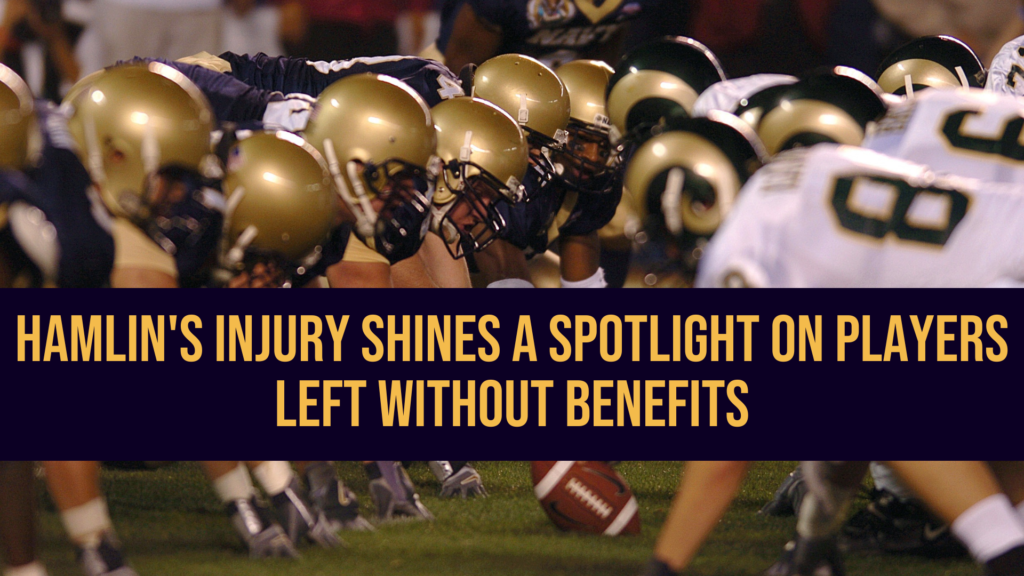Tom Baumann Discusses Workers Compensation in Pittsburgh
Tom Baumann discusses his landmark workers compensation victory – Mary Ann Protz vs. Workers Compensation Appeal Board – and other aspects of treatment for work-related injuries with Workers Compensation Experts.
Baumann’s work in the Protz case voided the use of the Sixth Edition of the American Medical Association’s Guide to Evaluation of Permanent Injuries as a reason to reduce severely injured workers status – and benefits – from permanently disabled to partially disabled.
“Our state does a reasonable job compensating minimally and moderately impaired workers,” Baumann said, “but the severely impaired … NO!”
The Pennsylvania legislature undid the court decision a year later, though the impairment rating level to move people from permanent to partial disability was reduced from 50% to 35%.
“It was a partial victory,” Baumann said. “A lot of people who had their benefits unfairly
reduced, saw total disability benefits reinstated. With the subsequent bill reducing the level to 35% impairment, more injured workers qualified for total disability benefits and that was a positive development. You’re always trying to come up with novel ways to help your client and I think we did that.”
Baumann goes on to discuss signs workers should see that their case needs help from an attorney; what workers compensation attorneys actually do to make a difference in the case’s outcome; and why it’s worth having an attorney on your side in a workers compensation claim.
Find the complete article here: Workers Comp in Pittsburgh
Doug Williams recognized again as a top lawyer by Best Lawyers in America
Doug Williams’ outstanding work in the area of workers’ compensation law has once again been recognized by Best Lawyers in America. The peer-reviewed publication named Williams to their 2021 edition for his high caliber of work. Since 2010, Williams has made the list six times.
Best Lawyers in America features the top 6% of private practicing attorneys across 146 areas of law. The 2021 edition recognizes roughly 65,000 attorneys who were vetted by more than 8 million evaluations. The publication started in 1983 and continues to maintain a highly regarded and stringent review process.
We congratulate Doug’s ongoing excellence in workers’ compensation law and on achieving this designation once again.
Tom Baumann featured in Tribune-Review article, provides expertise on workers’ compensation challenges with coronavirus
Partner Tom Baumann’s 35 years of experience with workers’ compensation law was highlighted when he was interviewed in a recent Tribune-Review article concerning coronavirus in the workplace.
Read the article below to learn more about new workers’ comp challenges and Baumann’s perspective on one recent case concerning an Allegheny County prosecutor who was denied workers’ comp after he contracted coronavirus.
Football Players – NOT Seasonal Employees
By Sandra Weigel Kokal
In follow-up to our prior posting – the Commonwealth Court of Pennsylvania recently issued its Decision regarding the precedent that professional football players are “seasonal employees” under the Pennsylvania Workers’ Compensation Act. In the case of Pittsburgh Steelers Sports Inc v. Workers’ Compensation Appeal Board (Trucks), Attorney Baumann had argued that Mr. Trucks signed a yearly contract with the Steelers and as such was required to perform year-round obligations for the team. In opposition, the Steelers had argued Mr. Trucks was just a seasonal employee.
The Court agreed with Attorney Baumann’s arguments. In rejecting the Steelers’ arguments and prior case law, the Court stated the facts and terms of Mr. Truck’s contract demonstrate that he was not a seasonal employee. Specifically, the Court stated Mr. Trucks’ contract covered 2 football seasons and included a number of performance obligations, which included the following: attend all mini-camps, pre-season training, all meetings, practice sessions, all pre-season, regular season and postseason games, any all-star games, cooperate with news media, attend 10 assigned appearances a year, and he was prohibited from playing football outside of employment. In exchange for performing these obligations, he received a yearly salary for those 2 seasons. Trucks obligations did not limit his activities to just the regular football season; therefore, the Court stated his employment was NOT seasonal.
Football Players –Seasonal Employees?

Recently, Abes Baumann participated in an en banc argument before the Commonwealth Court of Pennsylvania revisiting the precedent that professional football players are “seasonal employees”under the Pennsylvania Workers’ Compensation Act. In the case of Pittsburgh Steelers Sports, Inc. v. Workers’ Compensation Appeal Board (Trucks), Tom Baumann argued that Mr. Trucks signed a yearly contract with the Steelers and as a year-round employee was required to perform year-round obligations for the team. Therefore, Mr. Trucks workers’ compensation benefits should be based upon the contract he signed.
Below, theWorkers’ Compensation Judge and Workers’ Compensation Appeal Board ruled in Mr. Trucks favor, finding his workers’ compensation benefits should be based upon the contract he signed with the Steelers. The Steelers appealed arguing that Trucks was a “seasonal employee.” The Commonwealth Court seemed skeptical of the Steelers’ claim that the contract was seasonal and questioned both sides on what constituted an NFL season. It appears that the Commonwealth Court will now revisit prior cases finding that football players are “seasonal employees”
See, “NFL Players Aren’t ‘Seasonal Employee’ Pa. Court Told” in www.law360.com for a summary of the Commonwealth Court argument.
